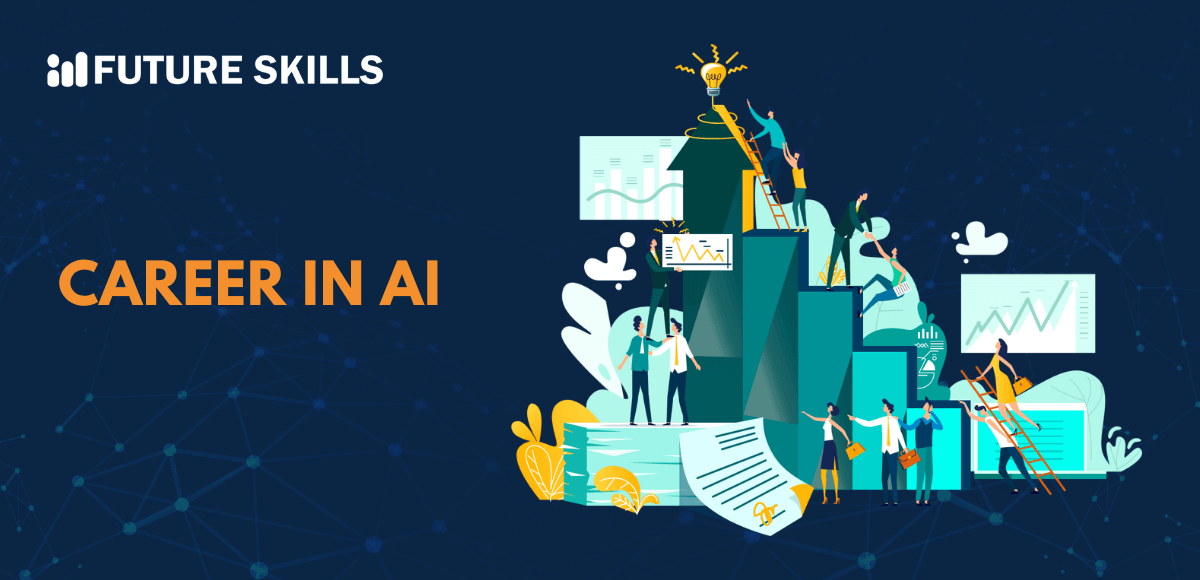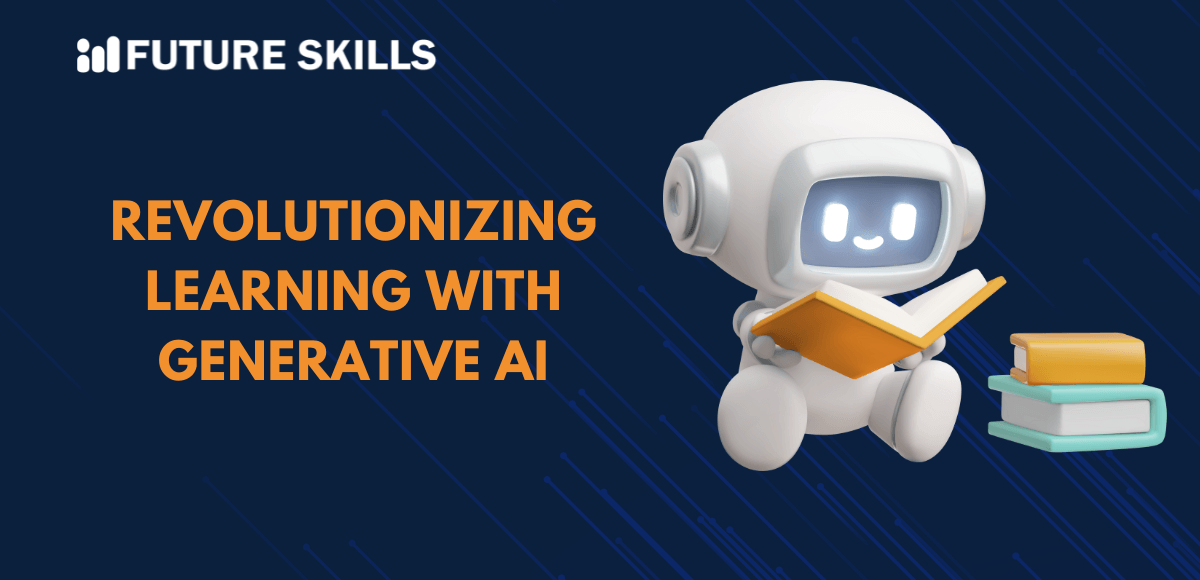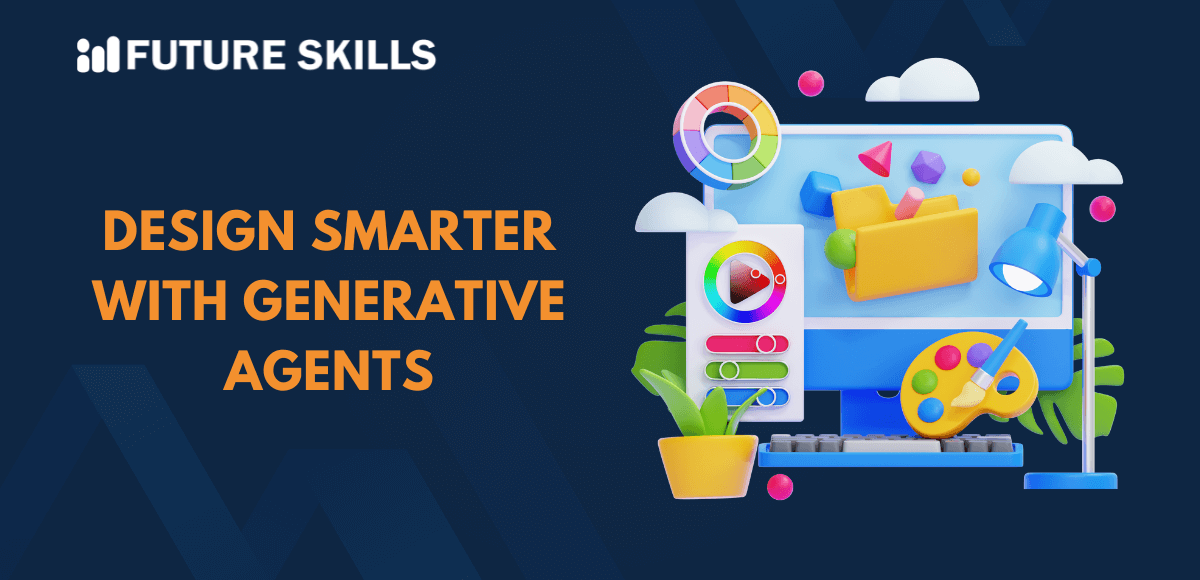Artificial intelligence, or AI, is everywhere around us and encourages innovation to propel different industries towards new benchmarks for growth. You can notice the presence of AI in government cloud infrastructure, personalized shopping, autonomous cars, and smart manufacturing. AI presents new opportunities for transforming industries alongside outlining new possibilities in business and society.
Therefore, a career in AI has become a lucrative proposition for professional development. On top of it, continuous improvement in AI capabilities leads to increasing demand for professionals with expertise in designing and deploying AI systems. The best thing about career opportunities in AI is the diversity of roles you can try working with based on your expertise.
Skilled AI professionals are important assets in almost every industry, such as financial services, media, entertainment, healthcare, national security, marketing, technology, gaming, agriculture, retail, and manufacturing. You can choose your favorite career path in AI in any industry that you want to work in.
Aspiring professionals must also note that you can also pursue various popular job roles in AI according to your preferences. For example, you can become an AI engineer, prompt engineer, data scientist, or an AI researcher. Let us find out the best roadmap to prepare yourself for the diverse career opportunities in AI.
Embark on a transformative journey into AI, unlocking career-boosting superpowers through our Certified AI Professional (CAIP)™ Certification program.
Why Should You Worry about a Career in AI?
Most people would think twice before looking for career opportunities in the domain of AI. Before exploring the answers to “How to get a job in AI?” you must figure out the reasons for growing popularity of AI careers. At the same time, AI is a new technology, and you may have certain apprehensions regarding your commitment to building your career as an AI professional. Interestingly, you can capitalize on a wide range of benefits with a career in artificial intelligence.
First of all, you must notice that different types of industries, including healthcare providers and space exploration agencies, have adopted AI. As a skilled AI professional, you can position yourself as a valuable asset for companies that want to use AI. Some of the industries that are adopting AI on a large scale include financial services, technology, manufacturing, healthcare, cybersecurity, and retail.
The right skills can help you find multiple career opportunities in artificial intelligence with the assurance of dynamic job roles and higher salaries. It is also important to note that the hiring of AI professionals has increased by almost 32% in recent times.
The massive talent gap in AI job markets suggests a higher demand for qualified AI experts. However, skeptics might have doubts regarding the sustainability of new career opportunities in the domain of AI. Will you find the flexibility that you have always desired in a technical job role?
Interestingly, artificial intelligence career paths offer the advantage of flexibility as professionals can choose how they want to work. For example, qualified AI professionals can work as AI engineers, product developers, AI researchers, AI consultants, or freelancers. In addition, the skills that you learn in AI are transferable to different industries, thereby offering you a versatile career choice.
Build ChatGPT skills and take the first step to becoming superhuman with our free ChatGPT and AI Fundamental Course
Isn’t AI Supposed to Remove People from their Jobs?
The most pressing concern for people seeking jobs in AI would revolve around the uncertainty of career growth with AI. Professionals across different industries have discovered that artificial intelligence would displace many people from their jobs. However, it is also important to note that AI would redefine existing job roles rather than eliminate them completely. At the same time, AI would create more jobs than it would remove, thereby striking the perfect balance.
Anyone wondering about the possibilities for a career in AI must note that the AI industry might employ almost 100 million people by 2025. With 96% of recruiters prioritizing candidates with AI skills in 2024, it is important to understand that AI is not a threat to your professional growth. On the contrary, it can serve as a valuable resource to improve your professional portfolio and pursue new job roles.
Enroll now in the AI for Business Course to understand the role and benefits of AI in business and the integration of AI in business.
Which Career Path is Ideal for Your Career in Artificial Intelligence?
If you want to pursue a career as an AI professional, then you must be curious about the different job roles in AI. The flexibility to choose your career path in AI serves as one of the formidable advantages of a career in artificial intelligence. You can find different career paths with distinct professional responsibilities and salary estimates that can make your AI career rewarding. The most popular jobs in AI that you should look forward to include,
- Big Data analyst.
- Natural Language Processing Engineer.
- AI researcher or research scientist.
- Machine Learning engineer.
- Computer Vision engineer.
- Robotics engineer.
- AI engineer.
- Big Data engineer.
Each role presents promising benefits for the growth of artificial intelligence and also offers unique rewards to professionals. Some of the notable companies that hire AI professionals include Apple, Microsoft, Wells Fargo, Amazon Web Services, IBM, and many others.
Excited to understand the crucial requirements for developing responsible AI and the implications of privacy and security in AI, Enroll now in the Ethics of Artificial Intelligence (AI) Course.
How Much Can You Earn with a Career in AI?
The best way to judge career opportunities in artificial intelligence involves an assessment of the salary estimates. You must know that the salary of an AI professional is dynamic and subject to change due to inflation, demand, job market trends, and other crucial factors. The average annual salary of AI professionals can vary between $100,000 and $150,000. You can expect a higher salary as an AI professional in the role of an AI engineer. The average annual salary of AI engineers can be almost $171,715, with top positions paying more than $200,000.
Glassdoor points out that the average annual salary for entry-level AI job roles is $120,049. On the other hand, indeed shows that the average annual salary for AI professionals is around $99,568. Another portal, Talent.com, revealed that the average salary of AI professionals is almost $143,054.
How Can You Build Your Career in AI?
The diverse benefits of pursuing different career paths in AI show that you can become an AI professional and capitalize on long-term prospects for career growth. You can find trusted answers to ‘How to get a job in AI?’ by choosing the ideal roadmap to learn AI and gain the skills to work as an AI expert. It is important to note that you cannot become a senior AI engineer within a few months. However, you must pay attention to the following pointers to establish a successful career in artificial intelligence.
-
Achieve Mastery in Foundation Skills
The first thing you would need to learn before stepping into a career in AI is specialization in fundamental skills. In-depth knowledge of the fundamental concepts can help you with an easier learning curve in any AI career path. On top of it, a strong command over foundations of AI can help you learn advanced AI concepts with ease. You must learn basic mathematics, basic statistics, and data management to create an ideal foundation for an AI career.
You must learn basic concepts of algebra, geometry, and calculus, which serve as the foundations of AI models and algorithms. As an aspiring AI professional, you must also learn about statistical methods, probability, hypothesis testing, distributions, and regression models. Furthermore, you must also know about basic data management and preprocessing tasks, such as data cleaning, visualization, retrieval, and storage.
-
Specialize in Technical AI Skills
After completing the basics, you would have to build the technical skills required to serve professional responsibilities as an AI experts. You can prepare for niche artificial intelligence career paths by acquiring specialized technical skills. AI professionals need technical skills in programming, data science, machine learning, and deep learning. Programming is an essential technical skill that you need to work as an AI professional. You would need coding skills in languages such as R and Python that can help in data processing alongside development and testing of AI models.
Another important technical skill you need to become an AI expert is data science. You must enhance your expertise in data analysis, interpretation, and visualization to specialize in extracting valuable insights from data. The other important skills you would need to pursue your desired career path in AI include machine learning and deep learning.
An in-depth understanding of machine learning algorithms alongside their functionalities in AI systems can help you create and use AI models with better productivity. You must also familiarize yourself with deep learning to understand the workings of neural networks and their applications for tasks such as natural language processing and image recognition.
-
Build Fluency in Important AI Tools and Packages
You can become an AI professional only with expertise in effective implementation of AI solutions. It is important to look for career opportunities in artificial intelligence with specialization in top tools and packages required to develop and deploy AI models. Most importantly, you can find a massive ecosystem with Python that offers access to diverse frameworks and libraries. You should learn about the most important packages and tools to create AI models, such as Pandas, TensorFlow, Scikit-learn, NumPy, Keras, and others.
Each library and framework for AI models serves distinct functionalities that make them useful for AI professionals. For example, NumPy and Pandas are suitable for data manipulation and analysis. Similarly, TensorFlow offers a flexible and comprehensive ecosystem, including machine learning tools, community resources, and libraries. In addition, you can leverage tools such as Keras and PyTorch for deep learning.
-
Prepare Your Learning Pathway
The most important requirement to build your career in AI is a learning pathway. You must have an academic degree such as a Bachelor’s or Master’s degree in data science, computer science, mathematics, or statistics. Subsequently, the learning path to becoming an AI professional would also include online training courses and certification programs. You must choose self-paced training courses that offer the convenience of learning at your own pace.
On top of that, you should also choose the best artificial intelligence certifications that can prove your specialization in different concepts of AI. The opportunity for immersive training in artificial intelligence also points to the requirement for boot camps to learn coding and data science. Such types of learning resources can offer the advantage of improving your practical experience. Practice with hands-on projects can help you understand different theoretical concepts with expertise in building real AI models.
Final Words
The lucrative rewards associated with jobs in artificial intelligence have incited curiosity about the job opportunities for AI professionals. If you want to know the answers to “how to get a job in AI?” then you must follow a clearly defined roadmap. The learning pathways for AI professionals can offer better rewards when they include training courses from credible learning platforms.
You should look for platforms that focus on offering productive and well-organized resources to all learners. On top of it, you must also look for practical examples and hands-on exercises in the training and certification courses on AI technology. Identify your career goals for AI and become a part of a futuristic technology right away.






